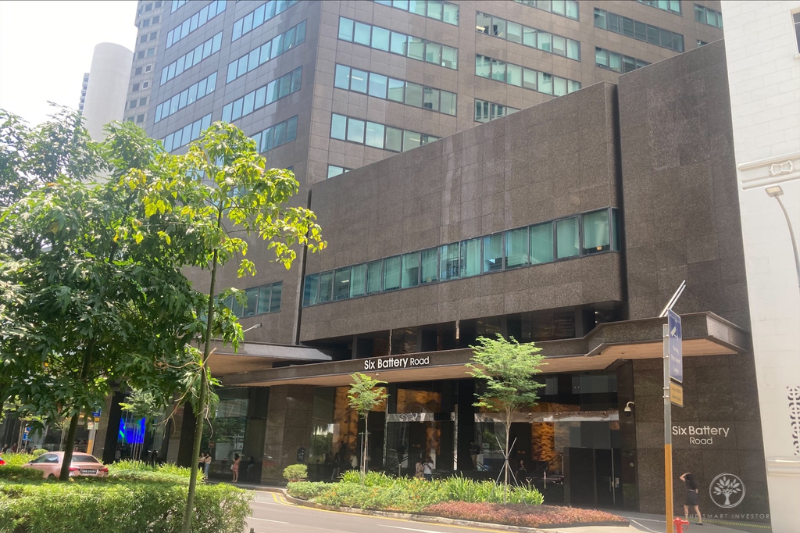CICT Reported Higher Net Property Income with Positive Rental Reversions: 5 Highlights from the REIT’s Latest Business Update

It has not been an easy time for the REIT sector as it must grapple with inflation along with high interest rates.
Because of these headwinds, many REITs have reported a decline in both net property income (NPI) and distribution per unit (DPU).
However, some REITs have bucked the trend.
Mapletree Logistics Trust (SGX: M44U) posted a small year-on-year increase in DPU for its latest quarter.
CapitaLand Integrated Commercial Trust (SGX: C38U), or CICT, has also announced an encouraging business update for the third quarter of 2023 (3Q 2023).
Here are five salient points from the retail and commercial REIT’s latest financial report card.
1. An increase in gross revenue and NPI
For 3Q 2023, CICT saw gross revenue rise 4.6% year on year to S$391.3 million with year-on-year increases across all three of its key divisions.
NPI inched up 0.6% year on year to S$275 million.
The REIT’s retail and office asset divisions saw year-on-year declines in NPI but this was offset by a 6.3% year-on-year increase in NPI for its Integrated Developments division.
The financial performance was slightly better for the first nine months of 2023 (9M 2023).
Gross revenue rose 9.8% year on year to S$1.2 billion for 9M 2023 with NPI improving by 6.8% year on year to S$827.3 million.
For 9M 2023, all three divisions saw year-on-year increases in NPI.
2. Healthy operating metrics
CICT continued to boast strong operating metrics.
The portfolio’s committed occupancy stood at 97.3% and was up 0.6% from the previous quarter.
In particular, CICT’s retail portfolio saw committed occupancy hit 99% as of 30 September 2023.
The weighted average lease expiry (WALE) of the portfolio stood at 3.5 years, with the integrated developments division having the longest WALE of five years.
CICT’s tenant profile is very diversified with no single tenant contributing more than 5.1% of gross rental income (GRI).
In addition, the top 10 tenants take up slightly less than one-fifth of the total GRI.
3. Stable debt metrics with abundant funding sources
CICT’s debt metrics remained stable despite the rising interest rate environment.
Aggregate leverage stood at 40.8% as of 30 September 2023, slightly higher than the 40.4% as of 30 June.
Its average cost of debt inched up from 3.2% in the previous quarter to 3.3%.
The REIT still maintains a healthy interest cover ratio of 3.1 times with 78% of its total loans on fixed interest rates.
CICT’s debt maturities are well-spread out with 17% of its total debt maturing in 2030 and beyond.
For 2024, 15% of the REIT’s debt is coming due but the manager has access to funding sources such as medium-term notes (MTN), unsecured bank loans, and secured bank loans.
CICT has also quantified the effects of a rise in interest rates on its DPU.
Assuming base rates rise by one percentage point, the estimated decline in DPU will be S$0.0033, or around 3.1% of the REIT’s trailing 12-month DPU of S$0.1066.
4. Robust retail performance
The retail scene in Singapore has been bustling since pandemic restrictions were removed.
For 9M 2023, CICT’s retail divisions saw shopper traffic increase by 12.9% year on year while tenant sales rose 4% year on year.
The tenant retention rate also stood high at nearly 83%.
Rental reversion was positive for both suburban and downtown malls, coming in at 7.4% and 8.4%, respectively.
On an overall portfolio basis, CICT’s retail segment saw a positive rental reversion of 7.8%.
The manager is continually optimising the retail tenant mix by introducing new-to-market or new-to-portfolio tenants.
Some examples of new-to-market tenants include Kenangan Coffee in Raffles City and Kawan Kawan in Tampines Mall.
New-to-portfolio names include Brother Bird in Raffles City and Yenny in Bugis Junction.
Moving on to asset enhancement initiatives (AEI), CICT’s CQ @ Clarke Quay AEI is slated for completion by the end of this year.
The handover of units to tenants will proceed progressively from this month onwards.
Committed occupancy has hit 85% for the property including tenants under advanced negotiations.
5. Higher rents for office division
CICT’s Singapore office portfolio is enjoying steadily rising rents.
The average rent for the REIT’s Singapore commercial portfolio has increased from S$10.38 per square foot per month (psf pm) on 31 March to S$10.45 psf pm as of 30 September 2023.
For 9M 2023, the office portfolio saw a positive rental reversion of 8.8%.
Is it a good time to buy into Singapore REITs? If you’ve thought about it, then our latest REITs guide will be an essential read. This exclusive pdf report shows you why REITs are still excellent assets, what sectors to look out for and how to find good REITs today. The info inside can help you build a solid retirement portfolio. Click here to download it for FREE.
Follow us on Facebook and Telegram for the latest investing news and analyses!
Disclosure: Royston Yang does not own shares in any of the companies mentioned.
The post CICT Reported Higher Net Property Income with Positive Rental Reversions: 5 Highlights from the REIT’s Latest Business Update appeared first on The Smart Investor.

 Yahoo Finance
Yahoo Finance 